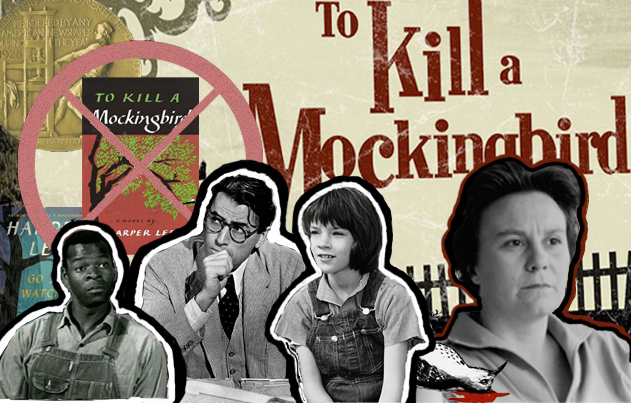Diverse Books Should be Added to Early English Curriculum
To Kill a Mockingbird
Over the summer, principal John Walker sent out an email to all students announcing that To Kill a Mockingbird (TKAM) by Harper Lee will not be taught in Campolindo’s freshman English classes this year.
Chair of the Campolindo English Department Jamie Donohoe believes that TKAM could be used to discuss race, but not at the freshman level when it’s more difficult to understand the role of white saviorism in the novel.
“For a long time, Atticus Finch has been viewed through the lens of the ‘great white hope.’ But there are many of us…who see that lens as a white lens and that actually there are some real problems with deifying Atticus,” said Donohoe.
La Puma wrote an article last year about the various problems with using TKAM to teach the issues of race to freshmen – the obvious being the constant usage of the n-word, the existence of white saviorism, and that the author was not even Black. Although the novel has the potential to teach students about racism if tackled well, the author’s own implicit prejudices throughout the book were not addressed or called out when it was taught during my freshman year.
“The use of the n-word and depiction of African Americans in certain novels has been problematic for many students,” Walker said. “To Kill a Mockingbird is 1 of these novels, so Campo is taking time this year to reevaluate its place in the curriculum.”
Given the white saviorist notions and problematic narrative in the book, we need to replace books like TKAM that talk about race in a white perspective by introducing more novels at the freshman and sophomore levels by authors of color, especially books that discuss the themes of oppression and racism.
“BSU did discuss the removal of both Huckleberry Finn and TKAM from the freshman curriculum,” said Black Student Union (BSU) member senior Emma Dillard. “I think that any new novel chosen by the English Department should offer a different perspective and be presented within a context of a greater conversation about race.”
As we begin working to include more diversity at Campolindo through Academy Cohort, we should take some time to discuss the school’s reading list. Not only would this be a chance to talk about the problems that are overlooked in so many of these books, but it would also prepare people to have mature conversations about race and discrimination.
For example, in my English class, we are currently reading Born a Crime by Trevor Noah. This is a great book to learn about racial segregation created in the apartheid in South Africa from someone who has actually exprienced it. There needs to be more diverse books like this in our English curriculum, especially in freshman classes, where the diversity of literature is the most limited.
Many readers may think that we forget the literature we read in high school anyways, so what’s the harm of teaching TKAM?
1 of the main problems is that, although many people do forget about books they read in high school, some still idolize Atticus Finch, the pinnacle of white saviorism. According to The New York Times, “In real life, people named their children after Atticus. People went to law school and became lawyers because of Atticus.”
Although Walker expressed that the English department has made recent additions such as Poet X by Elizabeth Acevedo, Born a Crime by Trevor Noah, Between the World and Me by Ta-Nehisi Coates, and Kitchen by Banana Yoshimoto, only 1 of these novels is taught to freshmen.
Instead of teaching To Kill a Mockingbird to freshmen, Campolindo needs to replace this book with better reading material to still address the subject of race.
Your donation will support the student journalists of Campolindo High School's The Claw. Your contribution will allow us to produce more issues and cover our annual website hosting costs.

In her free time, senior Zoe De La Cruz reads, writes, and watches movies. “I like any genre of book as long as it’s a good story,” said De La Cruz,...


